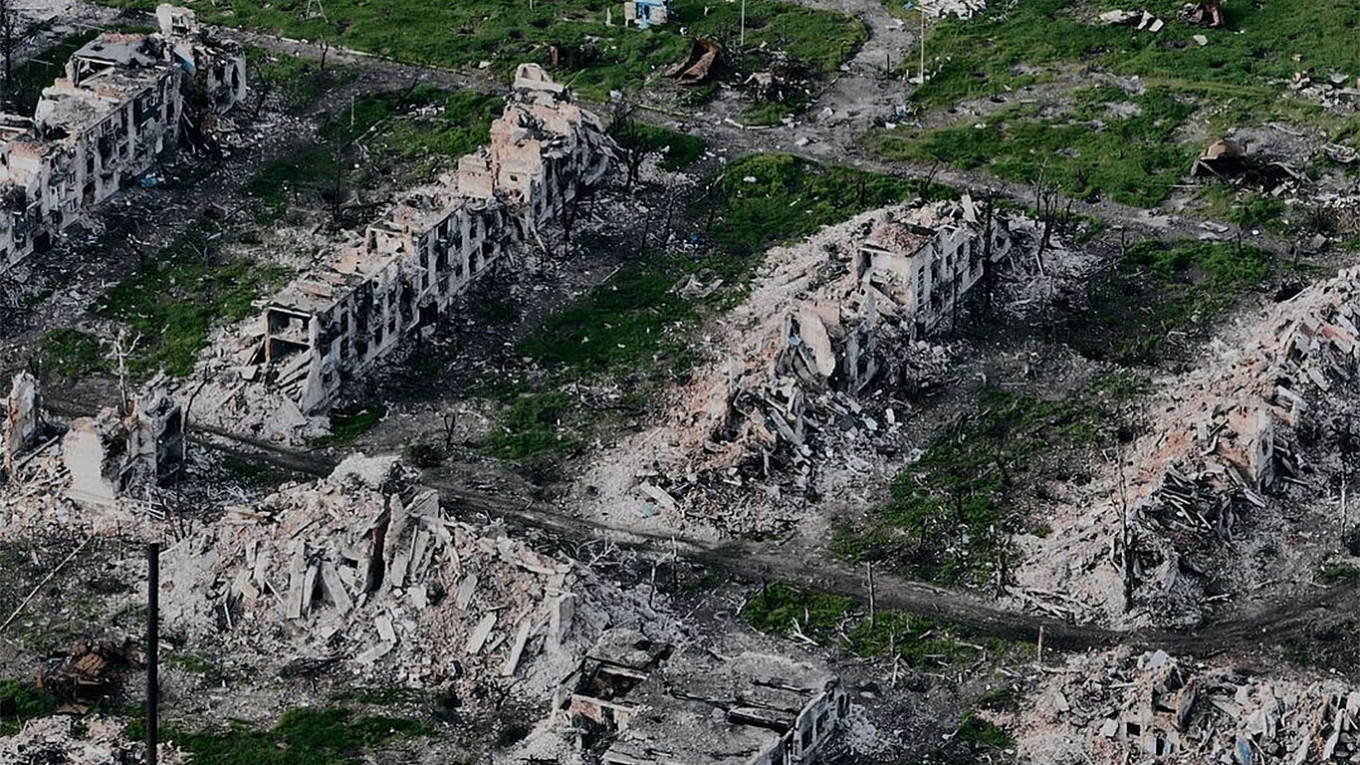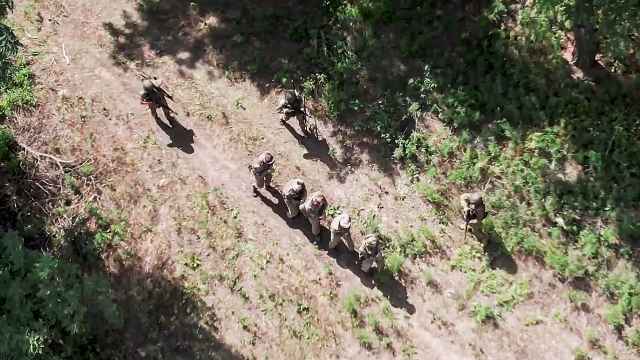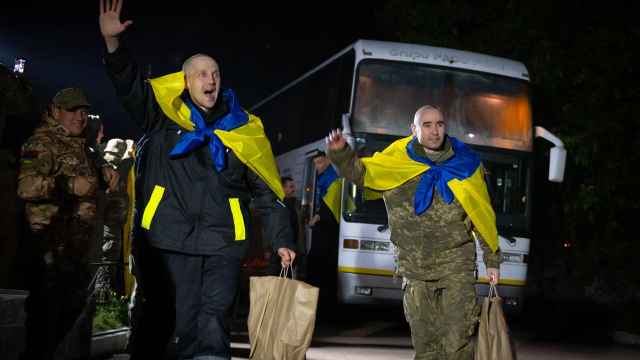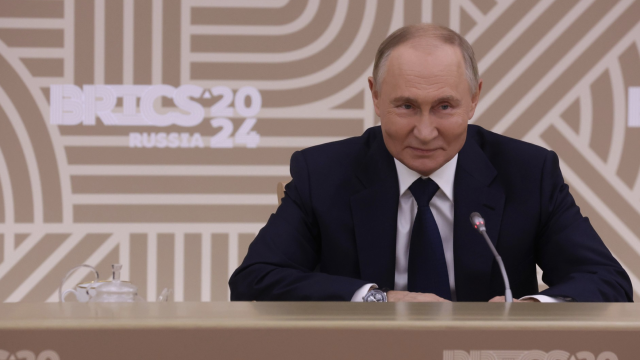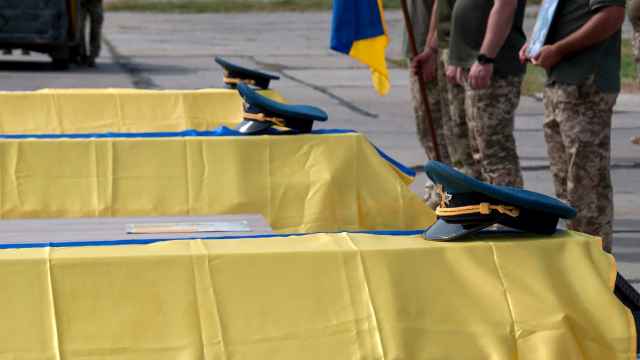As 2023 drew to a close, a fresh round of columns calling for a negotiated settlement to the war in Ukraine appeared in Western news outlets. These articles, in part, stem from increased reports of President Vladimir Putin’s alleged willingness to enter ceasefire negotiations, as well as the perceived failures of Kyiv’s counteroffensive to claw back large swaths of Ukrainian territory this past summer.
While reports indicate Putin is interested in a ceasefire, his public statements suggest otherwise. At his press conference last month, he said that Moscow’s objectives in Ukraine have not changed. Russia remains unwilling to cede any territory it took since launching its invasion. Furthermore, Putin allegedly told Chinese leader Xi Jinping that Russia is prepared to continue the war for five years.
Ukrainian officials have been equally consistent about their demands – President Volodymyr Zelensky said Ukraine will not enter peace negotiations unless Russian forces leave the country. Kyiv has also proposed its own peace plan that emphasizes justice for victims of Russian war crimes, full restoration of Ukrainian borders — including annexed Crimea — and security guarantees for Ukraine.
While Russia and Ukraine's conditions for peace remain irreconcilable, some diplomacy has taken place, as seen in the Black Sea Grain Initiative, prisoner swaps, and backchannel discussions that have been held with Moscow.
Calls to end the war based on the two countries’ current military positions, defined by a perceived stalemate, are growing by the day. Many of these calls focus on handing over Ukrainian territory to satiate Russia’s desires, which may bring about a temporary end to the fighting. But focusing only on the military situation leaves an incomplete picture of why peace between the two countries would not be achieved.
The most significant consideration is that Russia is engaging in a colonial war against Ukraine. Russian officials and media have also framed the war through the prism of Russian nationalism. Russia’s weaponization of the memory of the Second World War adds another layer by conflating the Soviet experience with the Russian experience. This way, the Kremlin seeks to buoy claims that Russia is refighting the Second World War through its efforts to “denazify” Ukraine.
As Ukrainians have grown more united in defense of their country, Russia has thrown more weight into its efforts to destroy Ukraine. The terror bombing of Ukrainian cities and the violence Russian forces have committed against civilians shows the Kremlin's true colonial intent.
Meanwhile, Russia has increasingly set its economy on a war footing. Reports of continued expansion of the Russian military also indicate Moscow has no intention of slowing down its war. While these new conscripts may not be ready until at least late 2024, the Kremlin looks prepared for a long war.
But Ukraine is fighting a defensive war and a war of liberation. We know about filtration camps, forced passportization, and the erasure of Ukrainian culture in occupied territories. Moscow has taken hundreds of thousands of Ukrainian children to Russia. Increasingly, reports confirm Russian authorities’ intent to have Ukrainian children raised as Russians, which violates the UN Genocide Convention.
Russia also underreports the loss of life in occupied territories. Kyiv’s desire to liberate these territories is not simply about regaining Ukrainian land, but also about rescuing civilians living in hellish conditions. Any peace plan that does not include some measure of justice for these victims of war will leave their wounds unhealed. If there are no notable consequences, Russia will learn it can act aggressively, and illegally, and succeed. Reparations and international tribunals will be a crucial step to redress the damage Russia has inflicted upon Ukraine and may also help prevent a renewed war in the future.
Finally – and critically for peace negotiations – Russia has repeatedly shown itself to be unreliable. The Minsk Agreements failed in part because Russia continually undermined them. A new ceasefire that would simply freeze the war can only repeat the mistakes of the Minsk Agreements. Hence why another key aspect of any peace agreement will be security guarantees for Ukraine. Russia is unlikely to accept Ukraine’s accession to NATO or the European Union. But no neutral power exists that could provide security guarantees.
A lack of trust in Moscow is why Ukraine has criticized calls for a ceasefire. Kyiv believes Russia would use a ceasefire to regroup and launch another invasion in the future. However, it could also allow Ukraine to do the same, as Russia’s invasion unlocked international military support at a scale Ukraine had never received in the past. Signing a ceasefire agreement with no guarantees for replenishing Ukrainian military supplies would deprive Kyiv of the one advantage it still has in continuing to defend itself – the war is still on the minds of its allies even if fatigue is setting in. Ukraine still believes it can win the war with additional military aid.
Peace is unlikely to come soon. While Russia’s war against Ukraine began in 2014, the full-scale invasion is not even two years old. Ukrainians want nothing more than peace. But peace is possible only if Russia is pushed out of Ukrainian territories.
Looking ahead, factors outside of Russia and Ukraine could play a key role in how the war evolves. Continued support for Ukraine has started to wane among Republicans in the United States. The looming U.S. presidential election, and the possible re-election of Donald Trump, could lead to military aid drying up completely, which could have cascading effects on European nations and their support. In this scenario, an emboldened Putin may once again attempt to capture Kyiv and overthrow Zelensky’s government. Russia could get what it wants in Ukraine just by waiting.
Ukraine’s path to peace would be best assured if Kyiv’s allies give it the military and political support it needs to drive Russian troops out of the country. In this case, Moscow may be forced to accept defeat in Ukraine. But, for now, this situation appears unlikely barring Ukraine’s allies commit fully to providing the support and military aid necessary to secure Ukrainian liberation.
In either case, wars are unpredictable. In 2022, Ukrainian forces took military analysts by surprise as they not only stopped Russia’s advance toward Kyiv, but also liberated major cities in eastern parts of the country. Regrettably, there were no major breakthroughs last year.
Russia is unlikely to change its war aims in 2024, while Ukraine will not settle for anything less than the full liberation of its territory. Ukrainian resistance remains strong. Yet, the policy choices by Kyiv’s allies could bring about an end to the war, although not necessarily lasting peace.
A Message from The Moscow Times:
Dear readers,
We are facing unprecedented challenges. Russia's Prosecutor General's Office has designated The Moscow Times as an "undesirable" organization, criminalizing our work and putting our staff at risk of prosecution. This follows our earlier unjust labeling as a "foreign agent."
These actions are direct attempts to silence independent journalism in Russia. The authorities claim our work "discredits the decisions of the Russian leadership." We see things differently: we strive to provide accurate, unbiased reporting on Russia.
We, the journalists of The Moscow Times, refuse to be silenced. But to continue our work, we need your help.
Your support, no matter how small, makes a world of difference. If you can, please support us monthly starting from just $2. It's quick to set up, and every contribution makes a significant impact.
By supporting The Moscow Times, you're defending open, independent journalism in the face of repression. Thank you for standing with us.
Remind me later.


